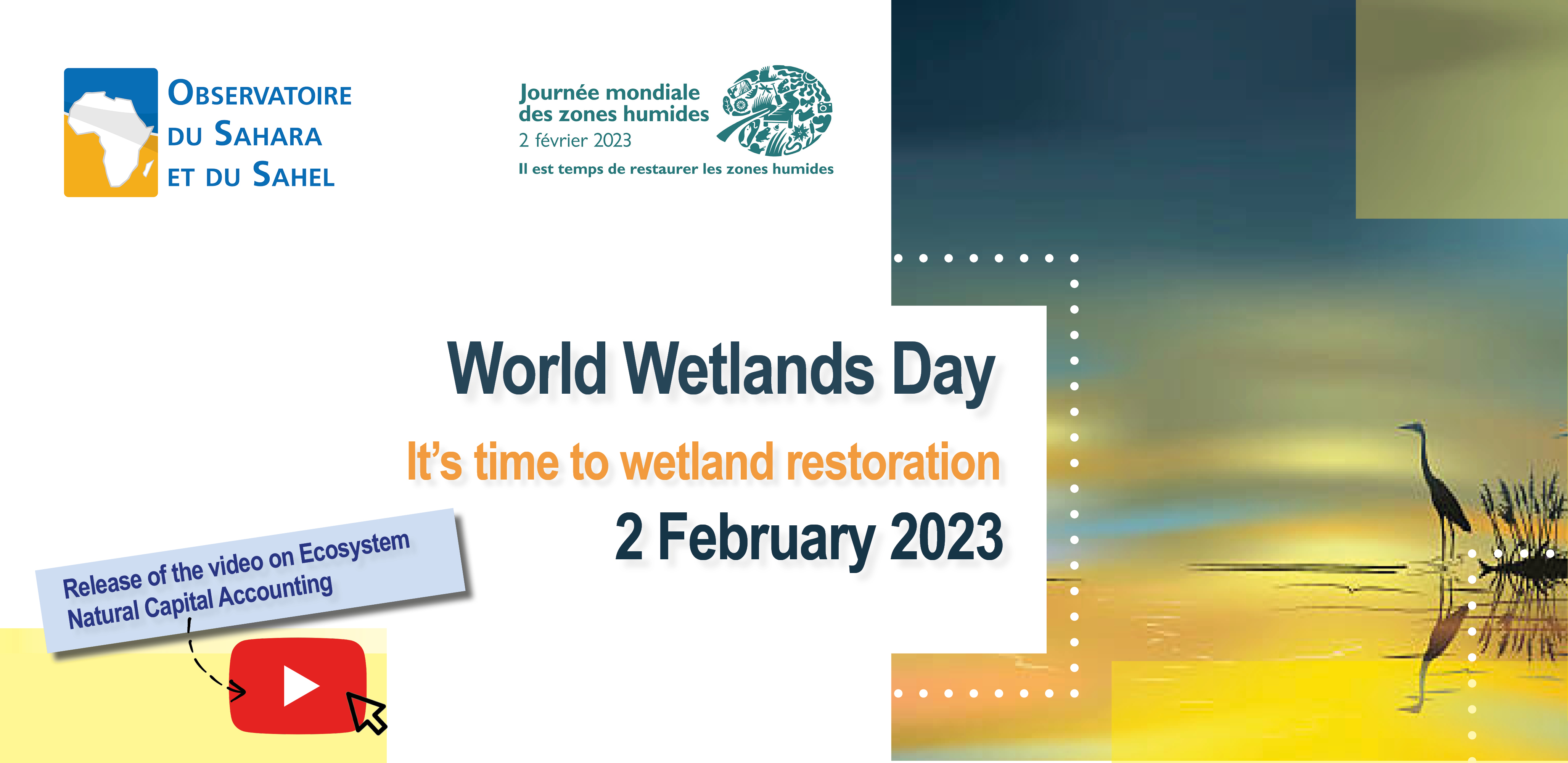The OSS restates its commitment to the enhancement and restoration of ecosystems in Africa.
World Wetlands Day: "It is time to wetland restoration"
The World Wetlands Day is celebrated on February 2 of every year, in commemoration of the adoption of the Ramsar Convention (1971). In addition to the descriptive inventory that it draws up of the wetlands fauna and flora, this convention calls for mobilization with a view to having the wetlands preserved, given the leading role they play in the cycle of water.
The Wuhan declaration, adopted in November 2022 at the end of COP14 of the Ramsar Convention, highlighted the immediate need of implementing and undertaking all the necessary actions for the wetlands preservation and restoration.
Considered to be the richest ecosystems on the planet in terms of biodiversity, wetlands play a crucial role in achieving a number of the Sustainable Development Goals (SDGs) and provide highly valuable ecosystem services related to food and water security and disaster risk protection. They are also an important tourist hotspot, and generate significant incomes for local economies.
Wetlands are also very useful for the survival of our ecosystems and in the fight against climate change. They represent an important reserve of carbon for the planet that would help keep global warming below 2°C by 2100.
Even if wetlands provide high-value ecosystem services for humanity, they are still being degraded under the effects of anthropogenic pressure, including intensive agriculture, irrigation, water withdrawal, urbanization, industrial development and pollution.
In 50 years, the surface of wetlands has decreased by 35% all over the world, a rate 3 times higher than that of deforestation. If no conservation measures are taken, such deterioration would affect nearly 60% of these areas by 2050. And here comes the need for monitoring tools that would play a decisive role in the maintenance and restoration of wetlands.
Ecosystem Natural Capital Accounting (ENCA) is one such tool. It has the ability to assess the potential benefits of ecosystem restoration programs, including wetlands. It also makes it possible to operationally make up for the lack of quantification of ecosystems and help meet international requirements and concerns of taking into account biodiversity and ecosystem services in national planning processes.
The AfrikENCA initiative, launched by the OSS in collaboration with the different partners of the Copernicea project, is part of this ecosystem restoration dynamic and aims to establish a national and regional network for sharing and exchanging information and data that are useful and necessary for the ENCA, in six French-speaking countries (Burkina Faso, Guinea -Conakry, Morocco, Niger, Senegal and Tunisia). The initiative would then provide the countries with their own operational and self-sustained mechanism for Ecosystem Natural Capital Accounting (ENCA).
Committed to a better ENCA-based quantification of ecosystems, the OSS and its partners contribute to the identification of the best solutions and to the response to the international community call for action launched in 2023 for the protection and restoration of wetlands.
The OSS is taking the World Wetlands Day on the theme "It is time to wetland restoration", to release the video produced under the Copernicea project that focuses on Ecosystem Natural Capital Accounting in Africa.
It aims to enable decision-makers and the civil society to better understand the ENCA concept and to grasp the relevance and the benefits of establishing it for the restoration of ecosystems, and the wetlands in particular.
To watch the video, click on this link: https://youtu.be/7MMX2GDdRq4
